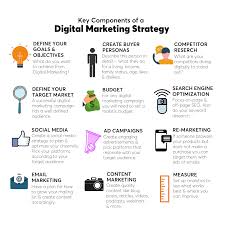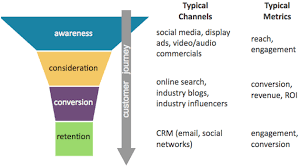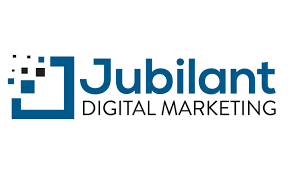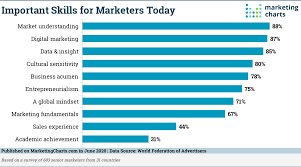The Power of Digital Marketing Companies in Today’s Business Landscape
In the digital age, where online presence is crucial for business success, the role of digital marketing companies has become more significant than ever. These companies specialise in leveraging digital channels to promote products and services, engage with target audiences, and drive business growth. Let’s explore the key reasons why businesses are turning to digital marketing companies to stay ahead in the competitive market.
Expertise and Experience
Digital marketing companies are staffed with professionals who possess a deep understanding of the ever-evolving digital landscape. From search engine optimisation (SEO) and pay-per-click (PPC) advertising to social media marketing and email campaigns, these experts have the knowledge and experience to craft effective strategies tailored to each client’s unique needs.
Targeted Approach
One of the main advantages of working with a digital marketing company is their ability to target specific audiences with precision. Through data-driven insights and analytics, these companies can identify key demographics, behaviours, and preferences of potential customers, allowing for highly targeted campaigns that yield better results and higher ROI.
Innovative Solutions
Digital marketing companies are at the forefront of innovation in the industry. They continuously explore new technologies, trends, and tools to stay ahead of the curve and deliver cutting-edge solutions to their clients. Whether it’s implementing chatbots for customer service or utilising virtual reality for immersive brand experiences, these companies are always pushing boundaries to drive success.
Measurable Results
Unlike traditional forms of marketing, digital marketing offers real-time tracking and measurement capabilities. Digital marketing companies use advanced analytics tools to monitor campaign performance, track conversions, and assess return on investment. This data-driven approach enables businesses to make informed decisions and optimise their strategies for maximum impact.
Adaptability in a Dynamic Environment
The digital landscape is constantly evolving, with new trends emerging at a rapid pace. Digital marketing companies have the agility and flexibility to adapt quickly to changes in algorithms, consumer behaviour, or market dynamics. This adaptability ensures that businesses remain competitive and relevant in an ever-changing environment.
In conclusion, partnering with a digital marketing company can provide businesses with a competitive edge in today’s fast-paced digital world. By tapping into their expertise, targeted approach, innovative solutions, measurable results, and adaptability, businesses can effectively reach their target audience, drive engagement, and ultimately achieve sustainable growth.
28 Frequently Asked Questions About Digital Marketing Companies
- What does a digital marketing company do?
- What are the 5 of digital marketing?
- How to start digital marketing?
- How do you start a digital marketing company?
- Who is the No 1 digital marketer in India?
- What does a digital marketing company offer?
- What are the 4 types of digital marketing?
- Which is the best digital marketing company?
- What’s a digital marketing company?
- How can I start digital marketing?
- Which is India’s No 1 digital marketing company?
- What is the role of digital marketing company?
- What is the best digital marketing company in the UK?
- Who is Father of digital marketing *?
- How do I start a digital marketing business?
- Is digital marketing good money?
- Which is the best company for digital marketing job?
- What are the 3 types of digital media?
- How do I start digital marketing?
- Which is best company for digital marketing?
- What is the largest marketing company in the UK?
- Who is the best digital marketing company in the world?
- What are the 5 key of digital marketing?
- What does a digital marketing do?
- Is digital marketing is BPO?
- Can I start a digital marketing company?
- Who is the biggest digital marketing company?
- Who is the No 1 digital marketer?
What does a digital marketing company do?
A digital marketing company specialises in leveraging various online channels and strategies to promote businesses, products, or services in the digital realm. These companies offer a wide range of services, including search engine optimisation (SEO), pay-per-click (PPC) advertising, social media marketing, content creation, email campaigns, and more. Their primary goal is to help businesses increase their online visibility, engage with target audiences effectively, drive website traffic, generate leads, and ultimately boost conversions and sales. By utilising data-driven insights and innovative techniques, digital marketing companies tailor bespoke strategies to meet the unique needs and objectives of each client, ensuring a strong online presence and a competitive edge in the digital landscape.
What are the 5 of digital marketing?
The five key pillars of digital marketing encompass various strategies and tactics that businesses can leverage to enhance their online presence and engage with their target audience effectively. These pillars include search engine optimisation (SEO), which focuses on improving a website’s visibility in search engine results; pay-per-click (PPC) advertising, where businesses pay for clicks on their ads displayed on search engines or social media platforms; social media marketing, which involves promoting products or services on popular social media channels to build brand awareness and engage with customers; content marketing, which aims to create valuable and relevant content to attract and retain a target audience; and email marketing, a powerful tool for nurturing leads, building relationships with customers, and driving conversions through personalised email campaigns. By understanding and implementing these five pillars of digital marketing, businesses can create comprehensive strategies that drive growth and success in the digital realm.
How to start digital marketing?
To start digital marketing, it is essential to first define your goals and target audience. Conduct thorough market research to understand your industry landscape, competitors, and consumer preferences. Next, establish a strong online presence by creating a user-friendly website and setting up social media profiles. Develop a comprehensive digital marketing strategy that includes elements such as search engine optimisation (SEO), pay-per-click (PPC) advertising, content marketing, email campaigns, and social media engagement. Regularly monitor and analyse the performance of your digital marketing efforts to make data-driven decisions and continuously improve your strategies for optimal results. Remember that consistency, creativity, and adaptability are key to succeeding in the dynamic world of digital marketing.
How do you start a digital marketing company?
Starting a digital marketing company requires careful planning and strategic execution. The first step is to define your niche and target market, identifying the specific services you will offer and the unique value proposition that sets you apart from competitors. Next, establish a solid business plan outlining your goals, target audience, pricing strategy, and marketing tactics. Building a strong online presence through a professional website and active social media profiles is essential to attract clients and showcase your expertise. Networking with industry professionals, attending relevant events, and seeking partnerships can also help in building credibility and expanding your client base. As you grow, focusing on delivering exceptional results, staying updated on industry trends, and continuously refining your strategies will be key to long-term success in the competitive digital marketing landscape.
Who is the No 1 digital marketer in India?
The question of who is the No 1 digital marketer in India is subjective and can vary depending on individual perspectives and criteria. India boasts a vibrant and diverse digital marketing industry with numerous talented professionals and agencies making significant contributions to the field. While there may not be a definitive answer to this question, there are several renowned digital marketers in India who have garnered recognition for their expertise, creativity, and innovative strategies. It is essential to research and evaluate different digital marketers based on their track record, client testimonials, industry awards, and impact on the digital marketing landscape to determine who aligns best with specific business goals and objectives.
What does a digital marketing company offer?
A digital marketing company offers a comprehensive range of services aimed at enhancing a business’s online presence and driving growth in the digital realm. From strategic planning and campaign management to creative content creation and performance analysis, these companies provide expertise in various areas such as search engine optimisation (SEO), pay-per-click (PPC) advertising, social media marketing, email marketing, and more. By leveraging the latest tools and technologies, digital marketing companies help businesses reach their target audiences effectively, engage with customers across multiple channels, and achieve measurable results that contribute to overall business success.
What are the 4 types of digital marketing?
In the realm of digital marketing, there are four primary types that businesses often leverage to reach and engage with their target audience effectively. These include search engine optimisation (SEO), which focuses on improving a website’s visibility in search engine results; pay-per-click (PPC) advertising, where businesses pay for their ads to appear when specific keywords are searched; social media marketing, which involves promoting products or services on social platforms to drive engagement and brand awareness; and email marketing, a direct communication channel used to nurture leads and build customer relationships. Each type of digital marketing plays a crucial role in helping businesses achieve their marketing objectives in the online space.
Which is the best digital marketing company?
The question of “Which is the best digital marketing company?” is a common one in the industry, but the answer may vary depending on specific needs and objectives. The best digital marketing company for one business may not necessarily be the best for another. Factors such as expertise in a particular niche, track record of success, range of services offered, client testimonials, and budget considerations all play a role in determining the ideal fit. It is essential for businesses to research and evaluate different digital marketing companies to find the one that aligns most closely with their goals and values, ultimately leading to a successful partnership and impactful results.
What’s a digital marketing company?
A digital marketing company is a specialised agency that helps businesses promote their products or services online through various digital channels. These companies employ a range of strategies, such as search engine optimisation (SEO), social media marketing, email campaigns, pay-per-click (PPC) advertising, and content creation, to enhance brand visibility, engage with target audiences, and drive conversions. By leveraging the power of the internet and digital technologies, digital marketing companies play a crucial role in helping businesses establish a strong online presence, reach their marketing goals, and stay competitive in today’s digital landscape.
How can I start digital marketing?
Embarking on your digital marketing journey can seem daunting, but with the right approach, you can kickstart your efforts effectively. To start digital marketing, begin by defining your goals and target audience. Conduct thorough market research to understand your audience’s preferences and behaviours. Establish a strong online presence through a well-designed website and active social media profiles. Explore various digital marketing channels such as SEO, social media marketing, email campaigns, and PPC advertising to reach your audience effectively. Consistent monitoring and analysis of your campaigns’ performance will help you refine your strategies for optimal results. Remember, starting small and gradually scaling up as you gain insights and experience is key to a successful digital marketing strategy.
Which is India’s No 1 digital marketing company?
The question of identifying India’s top digital marketing company is a common query in the industry. With a vibrant and competitive digital marketing landscape in India, several companies have established themselves as leaders in the field. While opinions may vary based on specific criteria such as client satisfaction, industry recognition, innovation, and performance metrics, some renowned names often mentioned in discussions about India’s top digital marketing companies include Webchutney, WatConsult, and Gozoop. These companies have earned accolades for their creativity, strategic approach, and successful campaigns, making them contenders for the title of India’s No 1 digital marketing company.
What is the role of digital marketing company?
The role of a digital marketing company is to help businesses navigate and succeed in the online realm by leveraging various digital channels and strategies. These companies play a crucial role in developing and executing tailored marketing campaigns that aim to increase brand visibility, drive traffic, generate leads, and ultimately boost conversions. From search engine optimisation (SEO) to social media marketing, email campaigns, pay-per-click (PPC) advertising, content creation, and more, digital marketing companies utilise a range of tools and techniques to reach target audiences effectively. By staying abreast of industry trends, analysing data insights, and implementing innovative solutions, these companies empower businesses to enhance their online presence, engage with customers authentically, and achieve their marketing objectives in the ever-evolving digital landscape.
What is the best digital marketing company in the UK?
When seeking the best digital marketing company in the UK, it’s essential to consider various factors such as expertise, experience, client testimonials, and industry recognition. The definition of “best” can vary depending on specific business needs and goals. Some top digital marketing companies in the UK include those with a proven track record of delivering successful campaigns, a strong focus on data-driven strategies, innovative approaches to digital marketing, and a commitment to client satisfaction. Ultimately, the best digital marketing company for one business may not be the same for another, so it’s crucial to research and evaluate different companies based on your unique requirements before making a decision.
Who is Father of digital marketing *?
The title “Father of digital marketing” is often attributed to Ray Tomlinson, who is renowned for implementing the first email system in 1971. While there may not be a definitive single individual considered the sole originator of digital marketing, Tomlinson’s pioneering work in email communication laid the foundation for the digital marketing strategies and techniques that are widely used today. His innovative contribution to digital communication has had a lasting impact on the evolution of marketing in the digital realm.
How do I start a digital marketing business?
Starting a digital marketing business requires careful planning and strategic decision-making. Firstly, it’s essential to define your niche and target market to differentiate yourself in the competitive industry. Conduct thorough market research to understand the needs and preferences of potential clients. Next, acquire the necessary skills and expertise in areas such as SEO, social media marketing, content creation, and analytics. Building a strong online presence through a professional website and active social media profiles is crucial for attracting clients. Networking with industry professionals, attending relevant events, and seeking mentorship can also help you establish credibility and grow your business. Lastly, focus on delivering exceptional results for your clients to build a positive reputation and secure long-term partnerships.
Is digital marketing good money?
The potential for earning a good income in the field of digital marketing is significant, given the high demand for skilled professionals in this rapidly growing industry. Digital marketing offers various lucrative career opportunities, ranging from digital strategists and SEO specialists to social media managers and content creators. With the right skills, experience, and expertise, individuals in the digital marketing sector can command competitive salaries and even explore freelance or consultancy roles that offer flexibility and potentially higher earnings. However, success in digital marketing often depends on staying updated with industry trends, honing one’s skills continuously, and demonstrating a strong track record of delivering results for clients or employers.
Which is the best company for digital marketing job?
When it comes to finding the best company for a digital marketing job, it ultimately depends on individual preferences, career goals, and the specific industry or niche of interest. Factors to consider include company culture, opportunities for growth and development, the range of clients served, the types of digital marketing services offered, and the overall reputation of the company within the industry. Conducting thorough research, networking with professionals in the field, and exploring job listings from reputable companies can help individuals identify the best fit for their career aspirations in the dynamic and ever-evolving world of digital marketing.
In the realm of digital marketing, there are three primary types of digital media that businesses leverage to reach and engage with their target audiences effectively. The first type is owned media, which includes channels such as company websites, social media profiles, and email newsletters that are controlled and managed by the business itself. The second type is earned media, which refers to organic exposure gained through word-of-mouth, social shares, press coverage, and influencer endorsements. Lastly, paid media involves advertising efforts on platforms like Google Ads, social media ads, display banners, and sponsored content to increase visibility and reach a larger audience. By strategically combining these three types of digital media, businesses can create comprehensive marketing campaigns that drive brand awareness, engagement, and conversions in the competitive digital landscape.
How do I start digital marketing?
To embark on your digital marketing journey, the first step is to define your goals and target audience. Understanding what you aim to achieve and who you want to reach will guide your strategy. Next, establish a strong online presence through a well-designed website and active social media profiles. Content creation is key in digital marketing, so create valuable and engaging content that resonates with your audience. Utilise various digital channels such as social media, email marketing, SEO, and PPC advertising to promote your brand and connect with potential customers. Regularly monitor and analyse your campaigns to measure performance and make data-driven adjustments for continuous improvement. Remember, consistency, creativity, and adaptability are essential in navigating the dynamic world of digital marketing effectively.
Which is best company for digital marketing?
When searching for the best digital marketing company, it is essential to consider various factors that align with your specific business goals and needs. The definition of “best” can vary depending on what you prioritise, whether it’s expertise in a particular industry, a track record of successful campaigns, innovative strategies, transparent communication, or a strong focus on ROI. Conduct thorough research, read client testimonials and case studies, request consultations to discuss your objectives, and ensure that the company’s values and approach resonate with your vision. Ultimately, the best digital marketing company for you will be one that understands your unique requirements and can deliver tailored solutions to help you achieve your objectives in the digital realm.
What is the largest marketing company in the UK?
When it comes to the largest marketing company in the UK, one name that stands out is WPP plc. WPP is a multinational advertising and public relations company headquartered in London, with a significant presence in the UK market. As one of the world’s largest marketing conglomerates, WPP offers a wide range of services including advertising, media planning and buying, branding, digital marketing, and market research. With its diverse portfolio of agencies and a global network spanning multiple industries, WPP has established itself as a powerhouse in the marketing industry, driving innovation and creativity in campaigns for both local and international clients.
Who is the best digital marketing company in the world?
The question of who the best digital marketing company in the world is a subjective one, as different companies excel in various aspects of digital marketing based on their expertise, industry focus, and client needs. There are several renowned digital marketing companies globally, each with its unique strengths and capabilities. It is essential for businesses seeking digital marketing services to consider factors such as industry experience, track record of success, client testimonials, and alignment with their specific goals when determining the best fit for their needs. Ultimately, the best digital marketing company for one business may not necessarily be the best for another, highlighting the importance of conducting thorough research and selecting a company that aligns closely with individual requirements and objectives.
What are the 5 key of digital marketing?
In the realm of digital marketing, understanding the five key elements is essential for crafting successful strategies. The first key is Search Engine Optimization (SEO), which involves optimising website content to improve visibility and ranking on search engine results pages. Social Media Marketing is another crucial aspect, focusing on engaging with audiences on platforms like Facebook, Instagram, and Twitter to build brand awareness and drive conversions. Email Marketing plays a vital role in nurturing leads and maintaining customer relationships through personalised communication. Pay-Per-Click (PPC) Advertising allows businesses to target specific audiences with paid ads that appear on search engines or social media platforms. Lastly, Content Marketing involves creating valuable and relevant content to attract and retain customers, establishing credibility and authority in the digital space. Mastering these five key elements of digital marketing can elevate a company’s online presence and drive business growth effectively.
What does a digital marketing do?
A digital marketing company specialises in utilising various online channels and strategies to promote businesses, products, or services to a targeted audience. These companies typically offer a range of services, including search engine optimisation (SEO), pay-per-click (PPC) advertising, social media marketing, content creation, email campaigns, and more. Their primary goal is to increase brand visibility, drive website traffic, generate leads, and ultimately boost sales and conversions for their clients. By leveraging the power of digital platforms and data-driven insights, digital marketing companies help businesses establish a strong online presence and connect with their target customers in meaningful ways.
Is digital marketing is BPO?
Digital marketing is not the same as Business Process Outsourcing (BPO). While both involve outsourcing certain functions to third-party service providers, they serve different purposes and operate in distinct domains. Digital marketing focuses on promoting products or services through online channels such as social media, search engines, email, and websites to reach target audiences and drive business growth. On the other hand, BPO typically involves outsourcing non-core business processes like customer support, data entry, and back-office operations to streamline operations and reduce costs. Therefore, while digital marketing is a strategic approach to enhance brand visibility and engage with customers online, BPO primarily deals with operational efficiency and cost savings through outsourcing specific business functions.
Can I start a digital marketing company?
Starting a digital marketing company is definitely a viable venture for those with a passion for the digital landscape and a drive to help businesses succeed online. While there are no strict prerequisites to launching a digital marketing company, having a strong understanding of digital marketing strategies, techniques, and tools is essential. Building a solid portfolio of successful campaigns and acquiring relevant certifications can also bolster your credibility in the industry. Additionally, honing your skills in areas such as SEO, social media marketing, content creation, and analytics will be key to delivering value to your clients. With dedication, perseverance, and a willingness to continuously learn and adapt to the ever-changing digital landscape, starting and growing a successful digital marketing company is certainly within reach.
Who is the biggest digital marketing company?
The question of who the biggest digital marketing company is can be subjective and may vary depending on different criteria such as revenue, client base, global presence, or range of services offered. Some of the well-known names in the digital marketing industry that are often considered among the largest include agencies like WPP, Omnicom Group, Publicis Groupe, and Dentsu Group. These companies have established themselves as industry leaders with a wide reach and a diverse portfolio of clients. However, it’s important to note that the size of a digital marketing company does not necessarily equate to its effectiveness or quality of service. Each company has its strengths and areas of expertise that cater to different client needs and objectives.
Who is the No 1 digital marketer?
The question of who is the No 1 digital marketer is subjective and can vary depending on specific criteria such as industry expertise, marketing strategies, innovative approaches, and measurable results. In the dynamic and competitive field of digital marketing, there are many talented professionals and agencies who excel in their respective niches. Identifying the top digital marketer ultimately comes down to individual preferences, goals, and the specific needs of a business. It is essential to research and evaluate different digital marketers based on their track record, client testimonials, industry recognition, and overall impact within the digital marketing landscape.




